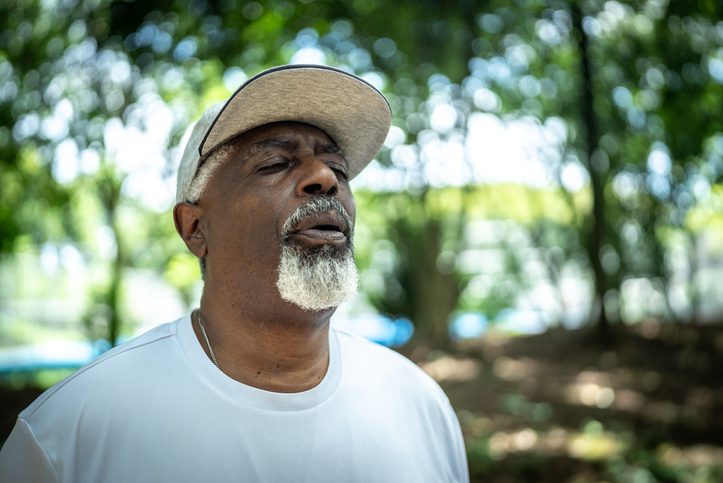Here is an experience you are likely familiar with.
You are engaged in a task you have done a million times before—taking a shower, washing the dishes, mowing the lawn—and your thoughts start to drift. Maybe you find yourself replaying something that happened to you recently. Maybe you start to think about something that is coming up that you are feeling a little nervous about. Or maybe you would be hard-pressed to recount your series of thoughts to someone else because you have fallen down a rabbit hole of tenuously connected ideas or memories (mindless social media scrolling is one common way to find yourself lost in disconnected thoughts).
Eventually, you will snap back to the present moment—perhaps when you have completed the task at hand—but for some period of time, you might say your body was in the present while your mind was wandering around the past, the future, or both.
It is undeniable that our minds have a tendency to meander. And oftentimes, that is no big deal. But for a person in recovery from a substance use disorder, it can be important to stay focused on the present moment more frequently.
That is where mindfulness practice can help.
Why is it Important to Stay Present?
We all daydream from time to time, allowing our minds to wander where they will. But too often, our minds want to spend time replaying negative incidents from our past or creating scenarios in which something awful happens in the future. This tendency to ruminate about past missteps or disappointments or to worry about what might happen down the road can lead to real problems for the person in recovery.
That is because replaying the past or imagining the future can lead to challenging emotions—and a person in recovery might be sorely tempted to address those emotions by returning to drug or alcohol use. By lessening the time spent ruminating or worrying, a person shores up the foundations of their recovery and is therefore more likely to avoid a relapse.
What is Mindfulness Practice?
Mindfulness practice is a way to help your mind learn to remain in the present more often than it normally does. Through the regular practice of mindfulness, a person gains an ability to focus on the current moment more often. As we have noted, this can help protect your sobriety. It also supports your mental health (which is thoroughly intertwined with your sobriety) and may help you strengthen your relationships, develop a sense of well-being, and reduce your stress levels.
The basics of mindfulness practice are pretty straightforward. Find a place to sit quietly where you won’t be disturbed or distracted. Take a few deep breaths before closing your eyes, returning your breath to normal, and bringing your attention to the natural flow of your breathing. While engaged in this activity, thoughts and feelings may arise, but you can just let them go without judgment. At the end of your mindfulness session, you will open your eyes, notice your surroundings, and carry the feeling of awareness into your next activity.
Sounds simple enough, right? Well, yes and no.
Some expert guidance can help you get the hang of mindfulness and help you deepen your practice over time. There are many resources to help you get started including books, online resources, apps, and, in some communities, in-person classes. For such a simple activity, mindfulness can be tricky to get the hang of. Sticking with it, however, leads to the sorts of benefits we have noted above.
You might think of mindfulness as an exercise for your mind that supports your sobriety in the same sort of way physical exercise provides support for your recovery.
Reach Out if You Need Help. We Won’t Mind at All.
At Farley Center, we are wholly committed to helping people reclaim their sobriety and then to maintain it over time. We provide medically supervised detoxification, a personalized rehabilitation experience, and a continuum of care intended to help see you through the difficult early days of your recovery. We treat each individual we serve with respect and offer services grounded in empathy as well as expertise and experience. And we can address co-occurring mental health disorders that might be tangled up with your substance use disorder in one way or another.
It can be difficult to ask for help. But if you put your mind to it, we are confident that you can take that first step toward sobriety. We are ready to help you get your recovery journey off to a hopeful start.


